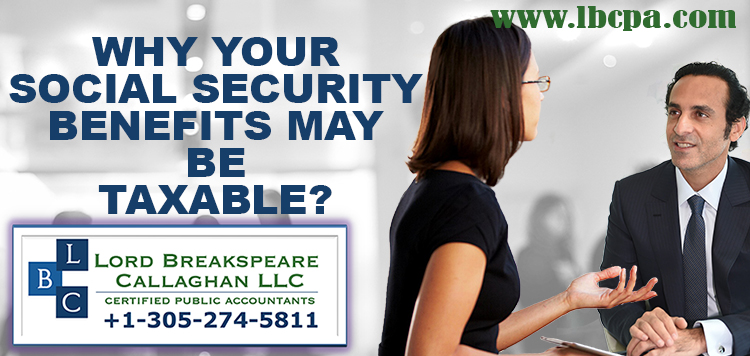LBCPA News 
Click here to go back
Be Prepared for Taxes on Social Security Benefits

Whether you’ve filed your 2022 tax return or soon will, one thing you don’t want to experience is a surprise. Many older people are caught off guard when they find that some of their Social Security benefits are taxable.
How much might you have to pay? Depending on your other income, between 50% and 85% of your Social Security benefits could be hit with federal income tax. (There could also be state tax.) This doesn’t mean you’ll pay 50% to 85% of your benefits back to the government. It means you may have to include 50% to 85% of them in your income subject to regular tax rates.
Calculate provisional income
To determine how much, if any, of your benefits are taxed, you must calculate your “provisional income.” Doing so involves adding certain amounts (for example, tax-exempt interest from municipal bonds) to the adjusted gross income on your tax return.
If you file jointly, you’ll need to add your spouse’s income, and then further add half of the Social Security benefits that you and your spouse received during the year. The result is your joint provisional income.
If you file a joint tax return and your joint provisional income isn’t above $32,000, none of your Social Security benefits are taxed. If your provisional income is $32,001 to $44,000, you must report up to 50% of your Social Security benefits as income. If your provisional income is more than $44,000, you need to report up to 85% of your Social Security benefits as income on Form 1040.
For single taxpayers, if your provisional income is between $25,001 and $34,000, you must report up to 50% of your Social Security benefits as income. And if your provisional income is more than $34,000, the general rule is that you need to report up to 85% of your Social Security benefits as income.
Sidestep a surprise
If you aren’t paying tax on your Social Security benefits now because your income is below the floor, or you’re paying tax on only 50% of those benefits, an unplanned increase in your income can have a significant tax cost. Not only will you pay tax on the additional income, but you may also have to pay tax on (or on more of) your Social Security benefits and you may get pushed into a higher tax bracket.
If you have any questions regarding Essential Business Accounting, Domestic Taxation, International Taxation, IRS Representation, U.S. Tax Implications of Real Estate Transactions or Financial Statements, please give us a call at +1-305-274-5811.
Source: Thomson Reuters






